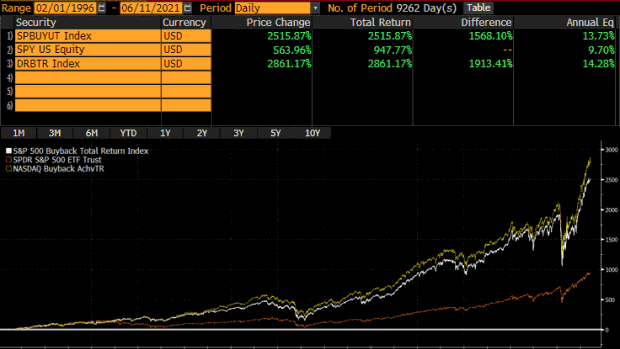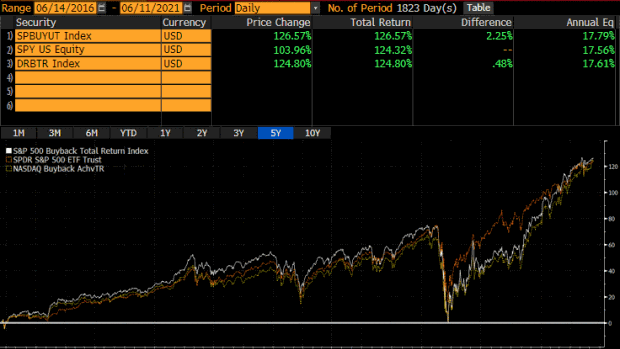Jun 14, 2021
Larry Berman: Are stock buybacks making inequality issues worse?
By Larry Berman
Larry Berman: Share buybacks are contributing to inequality issues
There is a significant shift developing towards minimum tax rates and for many companies to pay their fair share. Treasury Secretary Janet Yellen recently achieved an agreement within the G-7 backing a global minimum tax rate of 15 per cent. The narrative is about a “level playing field.” Following Q1 earnings, the number of companies boosting share buybacks has increased significantly. When a company earns income, they can return it to the shareholder in several ways.
- Reinvest for growth (CAPEX) adding to productivity and boosting market share. This equally benefits shareholders and employees.
- Increase dividends. This may benefit employees if they own stock, but mostly generates more cash flow for shareholders.
- Buybacks. This boosts earnings per share and mostly benefits senior executives that have stock options and shareholders. This makes inequality compensation issues much worse.
Are you as outraged to hear what JPMorgan CEO Jamie Dimon told analysts on their Q1 earnings call as we are? This is what protests were all about on Wall Street following the Great Recession.
"We're buying back stock because our cup runneth over."
"We're earning a tremendous sum of money, and we really have no option right now."
When you add up what the Biden Administration is trying to do in leveling the playing field (raising corporate taxes) against what Jamie Dimon is boasting in boosting his compensation, you get what I’m hinting at.
We think Environment, Social, and Governance investing (known as ESG) is becoming a big investment factor. The focus has mostly been on the “Environment” with the push to a low carbon future. We think this push for higher taxes to help pay for the “E” is all about the “Governance.” We think that there will be a slow shift away from corporate actions that promote inequality. We think ESG will likely add costs to companies and eat into margins. We think these shifts happen very slowly over longer periods of time.
The NASDAQ buyback index selects companies that buy back at least 5 per cent or more of outstanding stock in the past 12 months. The fund is reconstituted every January and rebalanced 4 times per year. It can be tracked with the ETF PKW (Invesco Buyback Achievers). It started in 1996 and has significantly outperformed the S&P 500. Most of that came in the 1990s. But in the past decade, it has been significantly lower. In the past 5 years, it has been about the same S&P 500.


We are not saying don’t use the buyback factor in your investing, we are suggesting that inequality issues will be addressed, in part, through the growing ESG focus. We think increasingly, investors will speak out against corporate policies that are seen to promote inequality issues. Share buybacks fall into that category.
Make sure you check out our weekly update in our PRO-EYES - Berman's Call macro indicators each week to help figure out when it’s time to be cautious or when it’s time to be opportunistic.
Follow Larry online:
YouTube: LarryBermanOfficial
Twitter: @LarryBermanETF
Facebook: @LarryBermanETF
LinkedIn: LarryBerman
Website: www.etfcm.com






